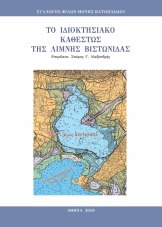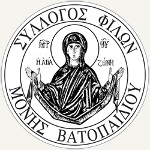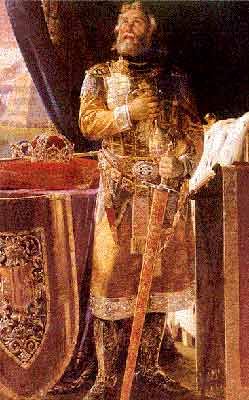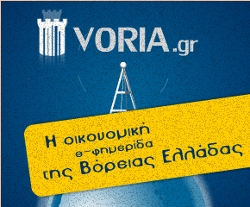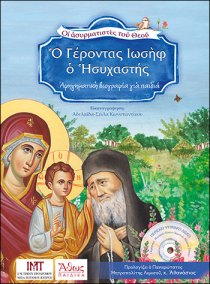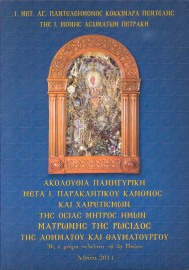Γράφεις πως μερικές φορές αισθάνεσαι ως νέος άνθρωπος αναγεννημένος και μεταμορφωμένος. Αυτό σου συμβαίνει συνήθως την ώρα της προσευχής κατά την εσπερινή ησυχία. Σαν να χάνεται αυτός ο κόσμος για σένα, διακόπτεται κάθε σκέψη περί του κόσμου, περί των ανθρώπων, περί των πραγμάτων, περί των σωμάτων. Μία ασυνήθιστη ειρήνη διαχέεται στην ψυχή σου. Βλέπεις κάποιο φώς μέσα σου και αισθάνεσαι ανείπωτη χαρά. Μέσα σε όλα αυτά αναδύεται μία παράξενη ευωδία που δεν μπορεί να συγκριθεί με καμία μυρωδιά πάνω στη γη. Όταν όλο αυτό αρχίζει να συρρικνώνεται και βαθμιαία, όπως το ουράνιο τόξο εξαφανίζεται από τα μάτια, σε καταλαμβάνει θλίψη γιατί αυτό δεν διήρκεσε περισσότερο, χωρίς διακοπή, χωρίς παύση, χρόνια, αιώνες και σ’ όλη την αιωνιότητα. Και ρωτάς τί μπορεί να είναι αυτό;
Νομίζω, ότι το Πνεύμα του Θεού άγγιξε την ψυχή σου, αδελφέ μου. Αυτό είναι που ο Κύριος λέει: «ιδού γαρ ή βασιλεία του Θεού εντός υμών έστιν» (Λουκ. 17,21). Γιατί όταν το Πνεύμα του Θεού ενθρονιστεί στη ψυχή μας, τότε σταματά οτιδήποτε είναι δικό μας μέσα μας και συνεχίζει εκείνο που είναι του Θεού. Όσο μέσα μας βασιλεύουν οι δικές μας επίγειες σκέψεις, οι γήινες επιθυμίες και η εγωιστική θέληση,τόσο δεν υπάρχει το βασίλειο του Θεού αλλά το βασίλειο του σκότους, του φόβου και της άγνοιας. Ενώ όταν το πνεύμα του Θεού έρχεται και κατοικεί μέσα μας, βιώνουμε τη Βασιλεία Toυ. Αλλά σε συμβουλευω: ταπεινώσου έως έκμηδενίσεως μπροστά στο μεγαλείο του Ύψιστου Θεού, που αποκάλυψε αύτη τη δόξα κατά το μέγιστο έλεος Του. Μην κοινοποιείς αυτό σε πολλούς αμύητους και ιδιαίτερα εκείνο το άλλο που και εγώ έδω δεν αναφέρω. Για να μην εκθέσεις στη βρωμιά εκείνο που είναι το πλέον άγιο και να μην ανέλθει η ψυχή στα υψη της υπερηφάνειας από τα όποια πέφτεις στα άδυτα του Άδου. Άκου πως αναφέρονται σ΄ αυτό: «Ο δοκών εστάναι βλεπέτω μη πέση» (Α’ Κορ. 10,12). Διαβάστε τη συνέχεια του άρθρου »
